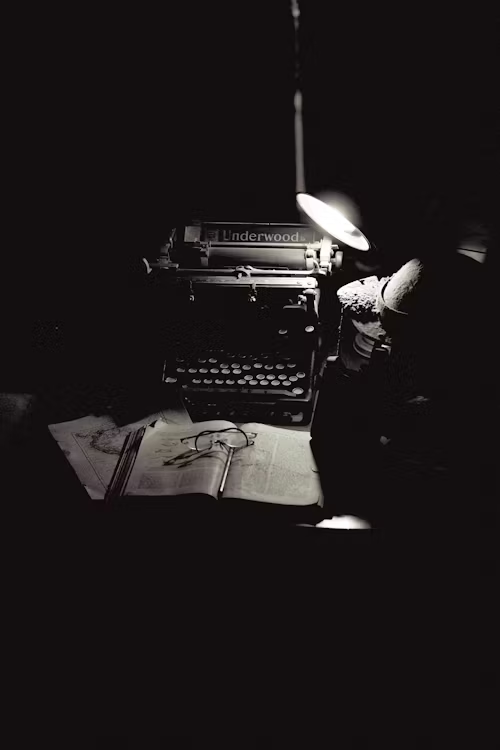What is a Book Coach—and Do You Need One?
Writing a book is a deeply personal, often daunting adventure. Some days you’re fueled by caffeine and creative fire, and other days… it’s just you and that blinking cursor. But here’s the good news: you don’t have to do it alone.
Enter the book coach—a growing resource for writers who want personalized guidance through the process of writing, finishing, and publishing their book. Whether you're a first-time author or a seasoned writer feeling stuck, a book coach can be your secret weapon.
But what exactly does a book coach do, and how do you know if hiring one is the right move for you? Let’s unpack it all.
What Is a Book Coach?
A book coach is a professional who supports writers throughout the writing and publishing process. Think of them as a cross between a writing mentor, editor, and project manager—someone who helps you stay focused, elevate your craft, and actually finish your manuscript.
Unlike traditional editors, who typically jump in after a draft is complete, book coaches come in much earlier. They might help you:
- Brainstorm and refine your idea
- Create an outline or structure
- Set realistic writing goals
- Review pages as you write
- Provide consistent manuscript feedback
- Navigate decisions about self-publishing vs traditional publishing
- Develop a pitch or book proposal
They’re part strategist, part cheerleader, and part accountability partner.
Some book coaches specialize in fiction or memoir, others in nonfiction or business books. Many offer customized packages based on your needs—whether you need hand-holding through the entire writing process or just help getting started. Some even help writers who are revising a second or third draft and want a fresh perspective.
Book Coach vs. Writing Coach vs. Editor
You might be wondering: isn't this the same thing as a writing coach or a book editor?
Not quite.
- A writing coach focuses more broadly on helping writers improve their skills, habits, and creative mindset. They may or may not work on a specific project with you.
- A book editor, such as a developmental editor, usually steps in once you’ve finished your draft. They assess the manuscript as a whole and help shape the content structurally.
A book coach blends both roles but is more hands-on and project-focused. The coaching relationship is ongoing, designed to guide you through every stage of your author journey—not just polish the end result.
One of the biggest differences is that a coach works with you while you're still creating the work. This allows for collaborative development and course correction along the way—not just judgment at the end.
What Does a Book Coach Actually Do?
Here’s a breakdown of typical services a book coach might offer:
1. Concept and Outline Development
Before you even write “Chapter One,” your coach can help you shape your concept, identify your target audience, and structure your book. If you’re writing nonfiction, they might also help you map out chapters or create a detailed proposal.
Some coaches use proven frameworks to help you articulate your book’s core message or theme, which helps ensure your writing stays focused. Others may take a more exploratory approach, asking powerful questions to draw the vision out of you.
They’ll also help you avoid common pitfalls early—like writing chapters that don’t support your central argument or wandering into tangents that confuse readers.
2. Accountability and Motivation
If you’ve ever set a writing goal and watched it fade into the abyss of your calendar reminders, you’re not alone. Book coaches provide consistent deadlines, check-ins, and encouragement. You’ll finally have accountability for writers—and it can be a game-changer.
Many writers find that simply knowing someone is expecting pages by a certain date helps them stay consistent. Coaches can help you build a sustainable routine around your writing, even if you only have 30 minutes a day.
Even more importantly, they keep your “why” front and center—so when you hit resistance (and you will), you remember what this book means to you.
3. Feedback While You Write
Instead of waiting until your manuscript is done, a coach reviews your work as you go. This allows you to adjust in real time, catch issues early, and stay aligned with your vision.
This manuscript feedback might include comments on character development, narrative arc, pacing, voice, clarity, or even how your book fits within your genre. It’s like having a development partner in your corner as your story evolves.
And because the feedback is iterative, it can dramatically cut down on your revision time later. You’re building smarter from the start.
4. Emotional Support and Mindset Coaching
Writing is vulnerable work. A good coach understands the emotional rollercoaster and helps you move past self-doubt, perfectionism, or fear of judgment.
Many coaches incorporate elements of mindset coaching into their process. They’ll help you work through imposter syndrome, resistance, or burnout, which can otherwise derail even the most promising projects.
Having someone remind you that your story matters—especially when you’re in the messy middle—is one of the most underrated benefits of coaching.
5. Publishing Strategy
When you’re ready to share your book with the world, a coach can help you decide between self-publishing and traditional publishing, craft query letters, or polish your book proposal. Some even provide referrals to agents, editors, or designers.
This strategic insight can save you months of research—and a lot of headaches. A book coach with publishing experience will understand the landscape and guide you toward the right path for your goals.
They can also help you prepare for marketing your book, long before it hits the shelves. In today’s world, authors—whether indie or traditionally published—need a platform, and coaches often support this side of the journey too.
Signs You Might Need a Book Coach
Hiring a book coach isn’t a requirement—but for many writers, it’s a worthwhile investment. Here are some signs it might be right for you:
You have a great idea… but you’re not sure how to start.
A coach can help you organize your thoughts, build an outline, and create a game plan that makes writing feel manageable.
You’re stuck in the middle of your manuscript.
Welcome to the "muddy middle." Coaches help you troubleshoot plot holes, clarify your theme, and keep moving forward.
You’ve written drafts before but never finished.
If you’re great at starting and terrible at finishing, a coach brings the consistency and deadlines you’ve been missing.
You need a trusted partner to talk through your ideas.
Writing is often a solitary endeavor. Having a professional thought partner can sharpen your thinking and keep your momentum strong.
You’re planning to publish and want to get it right.
Whether you dream of landing an agent or building a reader base as an indie author, your coach can guide you through the process with less guesswork and more confidence.
You’ve received critical feedback—but don’t know what to do next.
Sometimes beta readers or editors point out problems, but they don’t tell you how to fix them. A coach can help you process that input and turn it into an action plan.
You thrive with structure and support.
Some people just do better when they know someone’s got their back. If you crave a mix of encouragement and structure, coaching might be the missing link in your creative process.
Who Should Not Hire a Book Coach?
While coaching can be incredibly helpful, it’s not for everyone. Here are a few cases where it might not be the best fit:
- You’re just exploring the idea of writing and not ready to commit to a project
- You need only technical editing (grammar, formatting, etc.)—a copyeditor is more appropriate
- You’re looking for a quick fix or shortcut (writing still takes time and effort)
- You’re on a very tight budget and not ready to invest financially
That said, many coaches offer one-time consultations or smaller packages that could still be helpful depending on your goals.
How to Choose the Right Book Coach
Choosing a book coach is like choosing a therapist or personal trainer—you want someone whose style, personality, and approach align with your needs.
Here are a few things to consider:
- Experience: Do they specialize in your genre or type of book?
- Approach: Are they hands-on or more hands-off? Do you want tough love or gentle encouragement?
- Availability: Can they work with your schedule and deadlines?
- Testimonials: What do past clients say about working with them?
- Sample Session: Many coaches offer free consultations—take advantage of this to gauge the fit
You can also ask to see sample feedback or success stories. Have their clients finished books? Landed agents? Self-published successfully? These details can help you make an informed decision.
And don’t be afraid to ask about their coaching style. Are they directive, asking you to follow a system—or collaborative, helping you discover your own process? The more aligned you are in expectations, the smoother the journey.
Final Thoughts: Is a Book Coach Worth It?
If you’re serious about writing a book—and especially if you’re feeling overwhelmed, stuck, or unsure of your next step—a book coach can be a transformative ally.
They won’t write the book for you. But they will walk beside you, challenge you, support you, and hold the vision of your finished book when your own energy dips.
Ultimately, you’re the author. But with the right book coach, you’re no longer navigating the journey alone.
Need help deciding if book coaching is right for you? Try scheduling a consultation with a few coaches and trust your gut. The right match can make your book not only possible—but inevitable.




